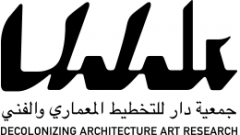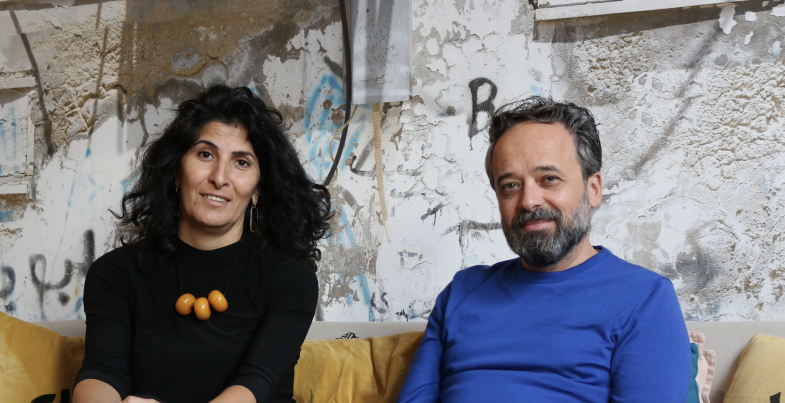The artistic research practice of DAAR – Sandi Hilal and Alessandro Petti – is situated between architecture, art, pedagogy and politics. Over the last two decades, they have developed a series of research- projects that are both theoretically ambitious and practically engaged in the struggle for justice and equality. In their artistic research practice, art exhibitions are both sites of display and sites of action that spill over into other contexts: built architectural structures, the shaping of critical learning environments, interventions that challenge dominant collective narratives, the production of new political imaginations, the formation of civic spaces and the re-definition of concepts.
Their practice has been accompanied by a series of seminal books. In Architecture after Revolution (Sternberg Berlin 2013), together with Eyal Weizman they invite the reader to rethink today’s struggles for justice and equality not only from the historical perspective of revolution but also from that of a continued struggle for decolonization, presenting a series of projects that try to imagine “the morning after revolution.” Another significant publication is the book-dossier Refugee Heritage (Art and Theory, Stockholm 2021) which challenges the mainstream idea of heritage by reusing, misusing, and redirecting UNESCO World Heritage guidelines and criteria. Permanent Temporariness (Art and Theory, Stockholm 2019), published on the occasion of two major retrospective exhibitions in Europe and the Middle East, accounts for 15 years of research and experimentation within and against the condition of Permanent Temporariness.
These theoretical speculations have been tested and emerged from architectural interventions in refugee camps. In 2015 they built a Concrete Tent in Dheisheh refugee camp in Bethlehem as a gathering space for conflict resolutions, alternative pedagogy and celebration. In 2014, the new layout of the Shu’fat School for Girls offered students and teachers the possibility of exploring alternative forms of pedagogies rooted in communities and connected to the land. In 2008, the realization of a square in Fawaar refugee camp promoted women’s rights to the public space. In 2019, the reconstruction of Al Nada social housing after its destruction by the Israeli invasion introduced shared common spaces.
Their architectural interventions often intertwine with the creation of learning environments. In 2012 they founded Campus in Camps, a university in a refugee camp, to connect the site of knowledge production on the campus with the site of social stigmatization, the camp. The formation of informal learning environments has been further developed in the tree school project in different locations: Brazil, Mexico, India, Croatia, Hong Kong, Australia.
Their artistic research practice has garnered several awards: Golden Lion at the 18th International Architecture Exhibition – La Biennale Di Venezia, the Prince Pierre Foundation Prize for artistic research, the Keith Haring Fellowship in Art and Activism at Bard College, the Loeb Fellowship Harvard University, the Price Claus Prize for Architecture.
Sandi Hilal is a visiting professor at Lund University, and Alessandro Petti is a professor of Architecture and Social Justice at the Royal Institute of Art in Stockholm.
They are proud parents of two daughters, Tala and Sama.


7 thoughts on “About”
Comments are closed.